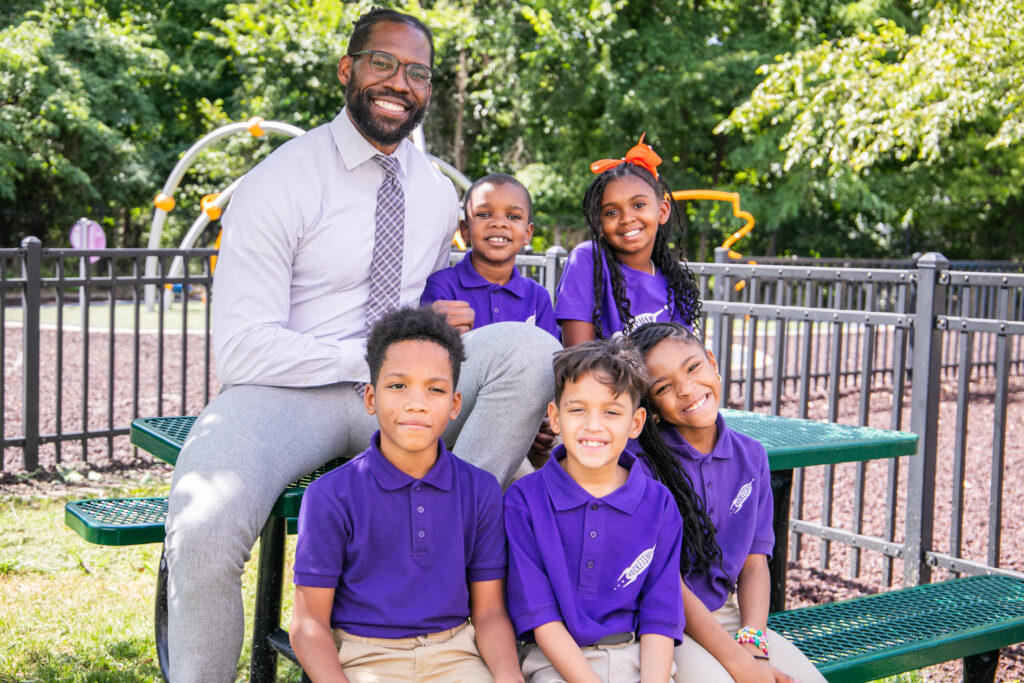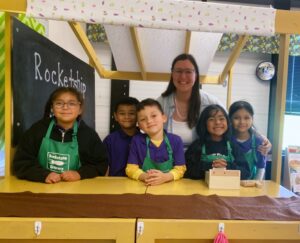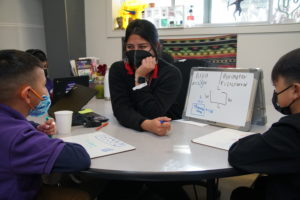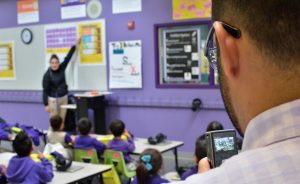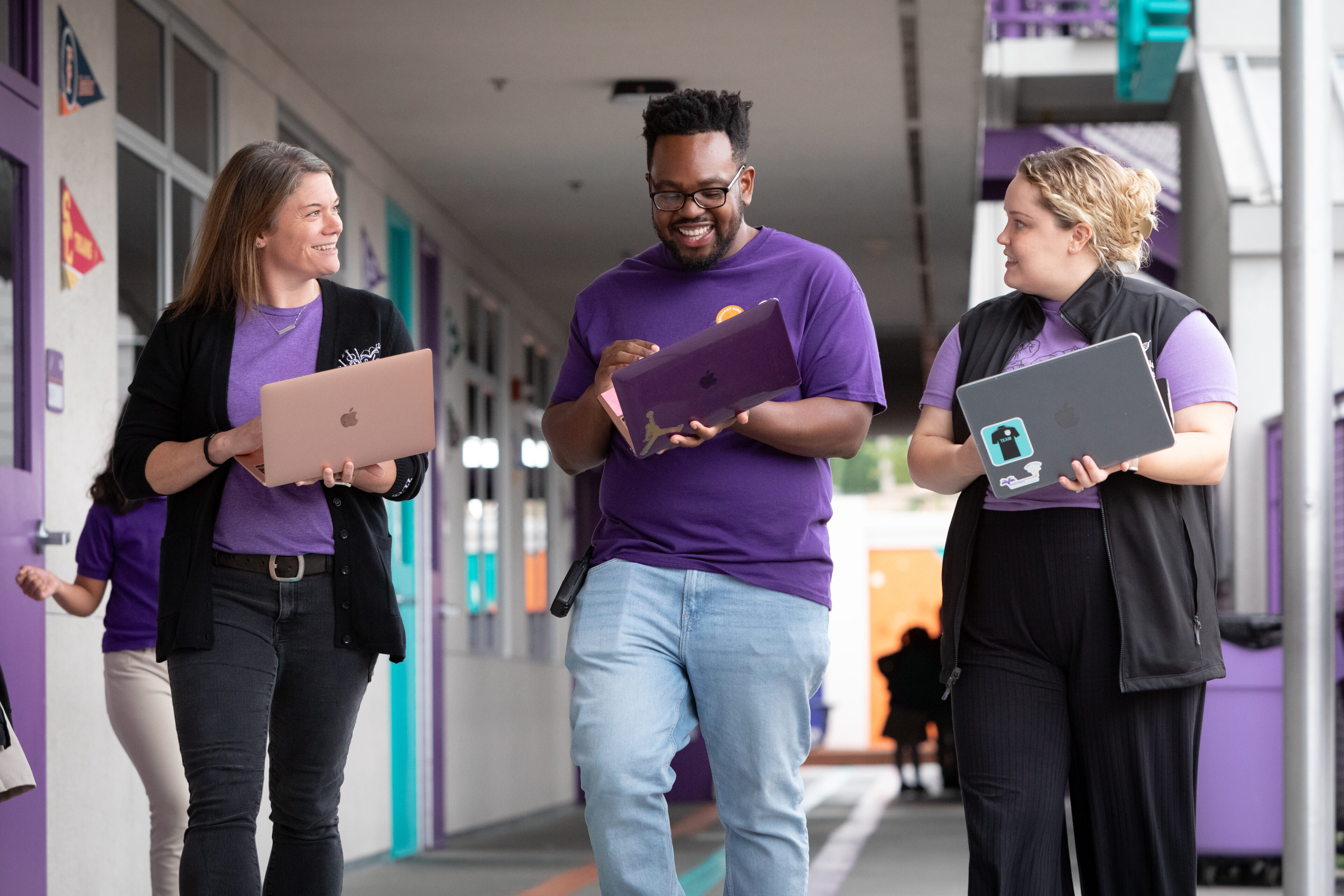
Parent Conference Tips for First Year Teachers
By Jeremiah Davis, Paraprofessional, Rocketship Dream Community Prep
Educators, it’s conference time! Every school year, parent-teacher conferences serve as an opportunity to cultivate communication and collaboration that benefit the student and build trust with parents. As you get prepared for the conferences, you want to keep in mind that parent-teacher meetings are for both the parent and child. The end result gets them more involved with their child’s education so they can become a partner in elevating their child’s education. Check out our must-know parent conference tips here:
Tip #1 Create a Welcoming Atmosphere
Positive Environment: Before conference time, set up your classroom or virtual space to be inviting, respectful, and conducive to open communication with cozy chairs or snacks. In-person meetings should always be a priority. If virtual is the only option, just make sure they are comfortable before you get started.
Respect Time: Be punctual and respectful of the parents’ time. Keep the conference focused and efficient. For example, have a calendared time slot, an agenda for topics, and maybe even a timer for your meeting to hit the most important items. If there is time left, you can talk about other things or get prepared for your next parent.
Cultural Awareness: Be open and mindful of cultural differences that may influence the student’s behavior, learning, and home environment. It’s important to really get to know the parents and how their situation is at home. Remember we are child’s learners as well as the child’s teacher.
Inclusive Approach: Ensure your communication is welcoming and inclusive to all parents, regardless of background. People care less about what you know until they know how much you care. Although we are educators and we are with their child most of the time, they want to know that you care about them regardless of any differences that may sit between you.
Tip #2 Review Student Data
Academic Progress: Student-specific data is there to help guide conversations with your parents. It’s good to have recent assignments, tests and grades on hand to give more detail to parents that can showcase what a child needs. Their report cards should give them a snapshot of all of their big picture academic status that track the child’s progress from the beginning of the year.
Behavior and Participation: Gather observations about classroom behavior, participation, and social interactions. Include any trends or changes you’ve noticed. Giving examples of what the student does in your class helps the parent know their student’s contribution to the classroom.
Learning Style: Identify the child’s learning style, preferred activities, and any special accommodations. Examples could be that a student learns kinesthetically and visually, therefore they may need a different approach to comprehending content. Special education teachers can help by sharing this information with the student’s parents if that student has an IEP. However, this can also apply to ALL students in your classroom space.
Academic Needs: The child may need extra help grasping the visual and hands-on information. Letting parents know the details they struggle with will help you create next steps for what they need to do with their child.
Tip #3 Foster Two-Way Communication + Anticipate Parent Concerns
Ask for Insights: Encourage parents to share their perspectives on their child’s strengths, interests, and struggles at home. Sometimes finding out family dynamics can motivate them to get more involved with the student’s academics. Also, it gives you a way to connect emphatically with the family.
Collaborative Mindset: Frame the conversation as a partnership. Ask how you both can collaborate to support the student’s growth. Start with your vision for all of your students and share what you feel the parent’s role could be in their child’s success. The vision could be for ownership of student work. In this scenario, you could provide worksheets for the parents to have as references.
Common Concerns: Be prepared to discuss common concerns such as academic progress, behavior, or social dynamics. If a student in your class has any behavior that needs to be discussed, be sure to communicate that. The parent has a right to know about the behavior.
Empathy: Be ready to listen actively to parents’ concerns. Show empathy and a willingness to work together. Let them know that you are on their side to really hone in on the child’s strengths and weaknesses. Especially as a new teacher, parents want to know that you are with them from the start.
Set Goals: Prepare specific, measurable goals that can be achieved in partnership with the parents. Be sure to track those goals with the parents. This way they can also take ownership of the academic progress. Track those student’s strengths and weaknesses and set them up for success to grow in their academics.
Tip #4 Clarify Next Steps + Provide Resources
Action Plan: Conclude the conference by outlining clear next steps, both for the student in the classroom and for parents at home. A next step for you can be making phone calls or text messaging on a consistent basis to keep the parent informed on their child’s academic progress.
Follow-Up: Schedule a check-in date or method to review progress on the goals discussed.
Support at Home: Have resources or strategies ready to share with parents that they can use to reinforce learning at home.
Contact Information: Share the best ways for parents to communicate with you (email, phone, etc.) and be clear about when you’re available for follow-ups.
This checklist coupled with a thorough action plan for your parent-teacher conferences will set you up for success. We hope this enables you to create a collaborative environment for both you and the parents this school year. One of the best things we can do is push family engagement and these tips help to better parent communication. We hope this helps achieve exactly that!
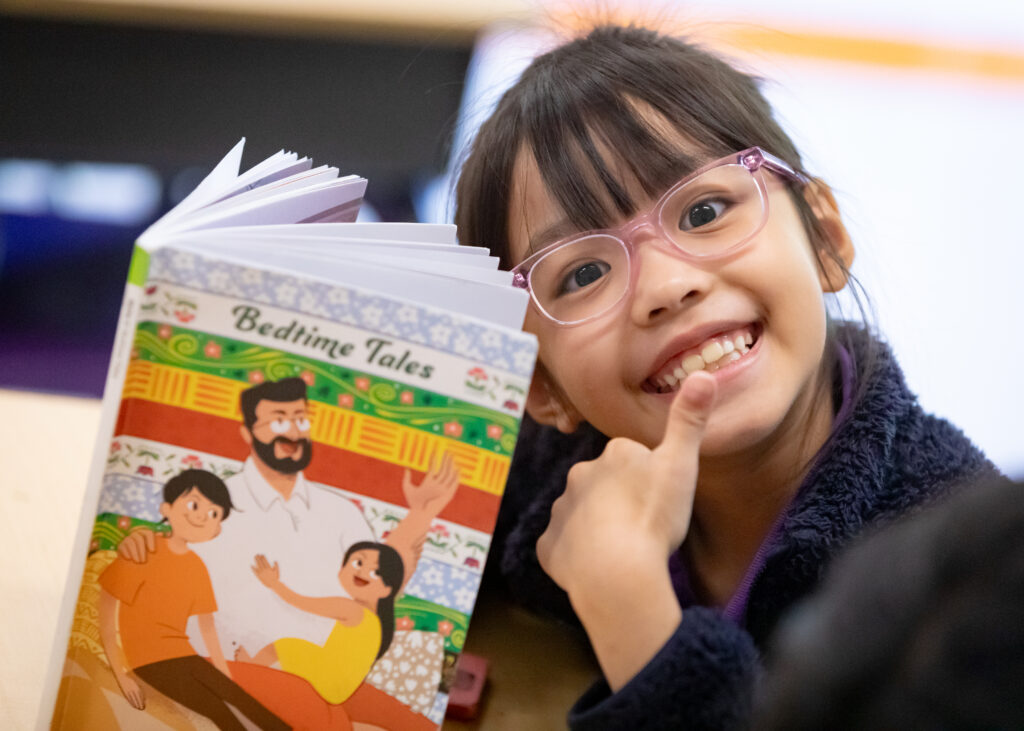
Published on January 2, 2025
Read more stories about: Talent Development.
Back In The Classroom
First Year Teacher? Here are Five Mistakes to Avoid.
Jeremiah David, Paraprofessional, Rocketship Dream Community Prep | November 1, 2024
See what mistakes most first year teachers make and how you can get ahead this school year with some simple tips from a fellow educator.
Read more ⟩3 Classroom Systems New Teachers Swear By
Rocketship Public Schools | Sept. 30, 2024
As a first year teacher, establishing a smooth and productive classroom environment can feel a tad overwhelming. Thankfully, these simple strategies can go a long way.
Read more ⟩How Co-Teacher Collaboration Can Benefit Your Classroom
Featuring Alejandra Chavez, Education Specialist at Rocketship Mosaic Elementary | June 10, 2024
Hear from Ms. Aly about how a small team of educators can make a big difference in student outcomes through thoughtful planning, focused collaboration, and personalized accommodations. Ms. Aly was one of our highest-performing educators in California for the 23-24 school year.
Read more ⟩How to Spark Joy in ESL Classrooms with a Multilingual Learning Clubhouse
Featuring Ms. Amy De La Rosa, Multilingual Specialist, Nashville Northeast Elementary | June 1, 2023
Listen in to an audio interview with Amy De La Rosa, a Multilingual Specialist who has worked as an educator for over 14 years and found an innovative way to help her students learn English in a more accelerated, playful way.
Read more ⟩Supporting Parents of Multilingual Students in Family/Teacher Conferences
Emma Volpe, Rocketship United Academy | June 1, 2022
Get thoughtful insight on how to create a more inclusive family-teacher conference environment.
Read more ⟩5 Ways to Strengthen Relationships in the Classroom
James Cross, Assistant Principal, Rocketship Nashville Northeast Elementary | February 20, 2022
A new age of education calls for a new level of connection. Here are some key tips to strengthen relationships in your classroom this school year.
Read more ⟩5 Ways School Leaders Can Coach and Support Teachers
Eesir Kaur, Director of Professional Development | October 15, 2020
Are you a school leader looking to coach your teachers more effectively? Here's what works for us.
Read more ⟩



